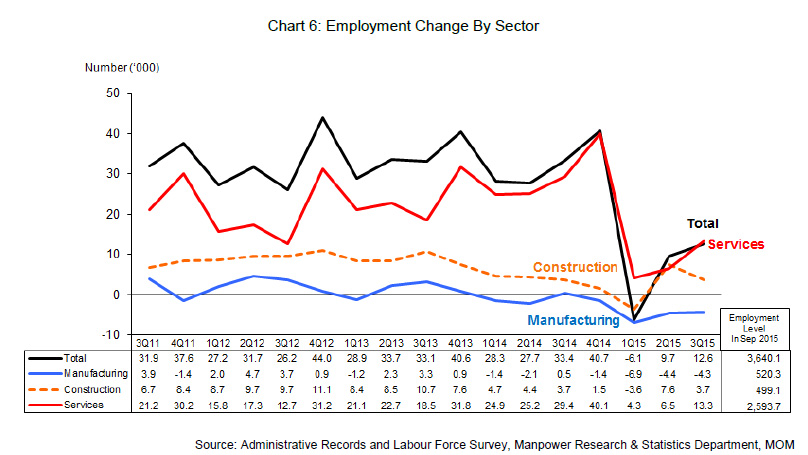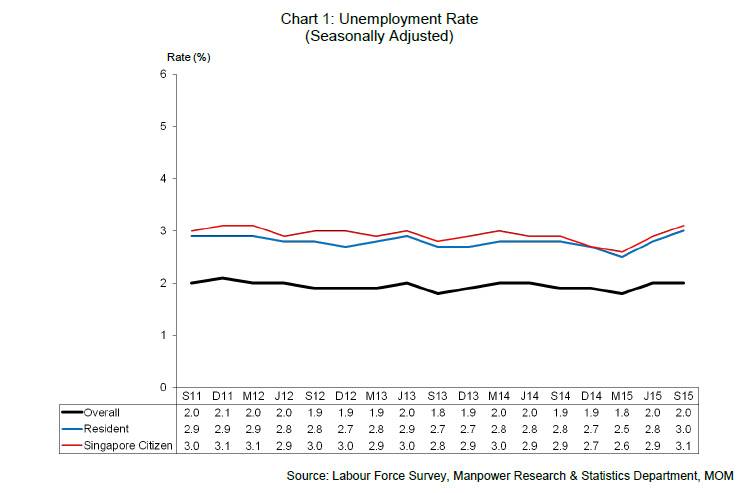Jobs growth in Singapore remained low in the third quarter of 2015, with unemployment rising slightly for residents and citizens, according to figures released in the Ministry of Manpower’s (MOM) latest Labour Market Report.
From July to September this year, total employment grew by 12,600, which is higher than the preceding quarter’s growth of 9,700 but significantly lower than the increase of 33,400 from the corresponding period last year.
According to MOM, the cumulative employment growth for the first three quarters of this year was 16,200, which is the lowest growth since 2009.
The employment gains were driven by increases in the services sector, with the wholesale and retail trade, real estate services, construction and manufacturing sectors all cutting back on employment.

Overall unemployment remained low at 2.0 per cent, but rose slightly for the second consecutive quarter to 3.0 per cent for residents and 3.1 per cent for citizens.
More workers were laid off in the third quarter, with 3,460 losing their jobs. This is higher than the 3,250 laid off in the second quarter of 2015.
A significant majority, or seven out of ten, residents laid off in the quarter were from the professionals, managers, executives and technicians (PMET) group, according to MOM.

Even though there were still more vacancies than people looking for work, the ratio has moderated with the number of seasonally-adjusted vacancies declining over the quarter by 11 per cent.
This has brought down the job openings to job seekers ratio to 116 openings per 100 seekers, which is comparable to the level in Jun 2013.
An estimated 56,700 residents, comprising 51,100 Singaporeans, were unemployed in Sep 2015, up from 52,700 residents unemployment in Sep 2014, MOM said.
Responding to the figures, Ms Jaya Dass, country director for HR services provider Randstad Singapore, said that the government’s focus on increasing productivity and transitioning to a more service and quality-based economy is making Singapore less manpower-reliant. “These initiatives, coupled with the slowdown in core sectors like manufacturing and construction, have contributed to slower employment growth,” she said.
However, she added that initiatives to deepen the skills of Singaporean workers, such as SkillsFuture, will provide better career opportunities in the coming year.
Source: http://business.asiaone.com







